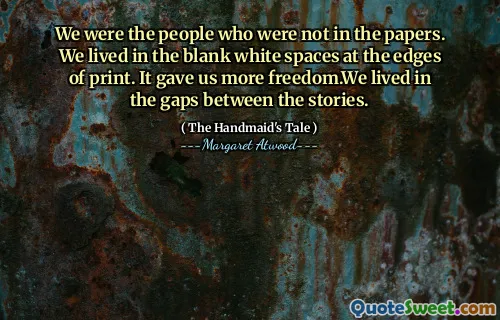The young ones are often the most dangerous, the most fanatical, the jumpiest with their guns. They haven't yet learned about existence through time.
In Margaret Atwood's "The Handmaid's Tale," the author explores the idea that youth can be associated with extreme behaviors and dangerous ideologies. Young individuals, often filled with zeal and fervor, can become highly fanatical in their beliefs, willing to act impulsively and aggressively. This portrayal suggests that their lack of life experience may lead them to dangerous extremes, especially in a society marked by oppression and control.
Atwood’s assertion highlights how the absence of a nuanced understanding of time and history can make the young susceptible to radicalism. Without the tempered wisdom that comes from age and experience, their actions can be unpredictable and volatile, serving as a reminder of the potential peril posed by fervent youth caught up in tumultuous societal changes.






